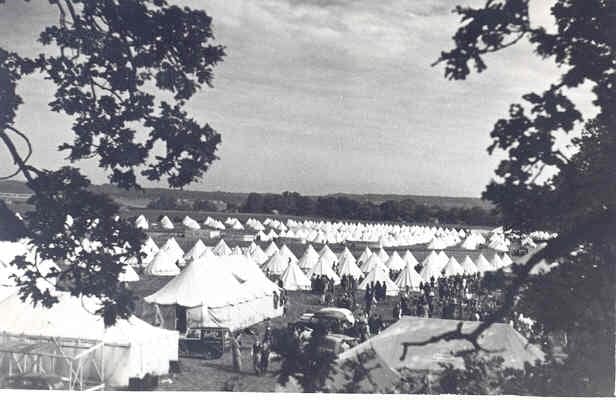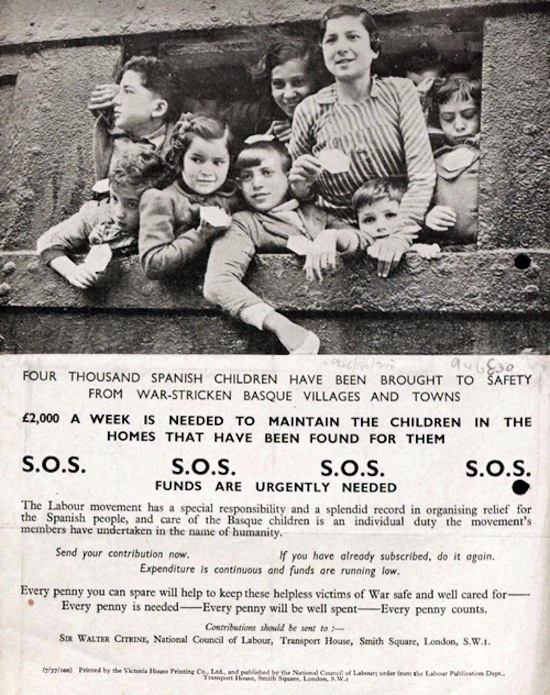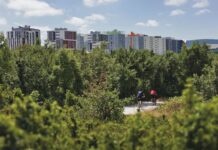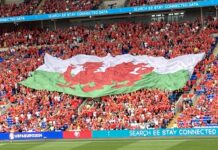The University of Warwick in England is running an extraordinary project: offering online access to over 13,000 pages’ worth of documents related to the Spanish Civil War, including letters, reports, and advertising material in the archives of the Trade Union Congress and other collections. It’s taken them 13 months at the Modern Records Centre to put together the largest English-language digital collection regarding this conflict.
We believe this is an absolutely stunningly good idea, which shows just how sensitive this university is. And we would have believed that even if the information we had access to had just stopped there. We came across this information on the Volunteers website run by the Abraham Lincoln Brigade, which found in the Spanish Civil War as part of the International Brigade on the side of the Republic and of Democracy, against the forces of totalitarianism, as the latter were testing new techniques in Spain in their attempt to conquer the world and finish off democracy. These volunteers were not just fighting the dictatorship, they were fighting for a world of free, equal men.
But, this news doesn’t just stop there, because, on the 75th anniversary of the arrival of 4,000 Basque children, they have scanned and uploaded a collection of photos from the camp organized to receive them between May 23 and September of 1937, when those Basque children were sent all over Great Britain. In addition to the photos, the archive also offers a huge amount of documentation about their stay in the UK. Both the photos and the documentation show how important the British volunteers were in taking in those children who were escaping the terrors of fascism.
Before we leave you, we can’t help but reflect on one of those tragic coincidences that unite Peoples. In the same year we honor the 75th anniversary of the savage Bombing of Guernica and of many other Basque towns at the hands of Nazi Germany and Fascist Italy, we must also note that close to the University of Warwick is the martyr town of Coventry, which suffered a similar fate as Guernica, being bombed on November 14, 1940, by the same Nazi bombers.
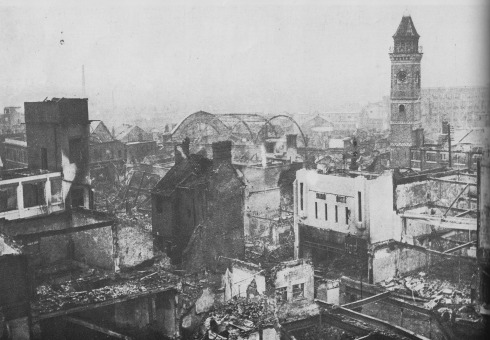
This city’s cathedral, reduced to its bones during the attack, is now preserved in that state to serve as a reminder of the miseries of war and to pay homage to the martyrs of that bombing of a civilian population. In 1962, a new cathedral was inaugurated, and on that auspicious occasion, British composer Benjamin Britten was asked to write something appropriate for such an event, and that he did: his marvelous “War Requiem”, a plea against all war.
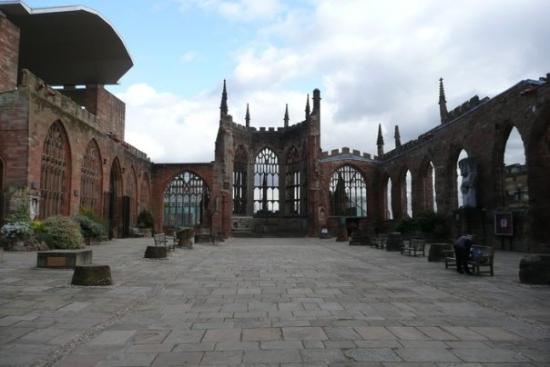
Before the links about the Basque War Children that the University of Warwick has posted, we’ll leave you with a fragment of this monumental work.
———————————
Universidad de Warwick – 21/5/2012 – Great Britain
Images in new online archive mark 75th anniversary of child refugees coming to UK
Archives of material about child refugees evacuated to the UK to escape the Spanish Civil War 75 years ago have gone online at the University of Warwick, as part of the largest English-language digital collection on the conflict. This week marks the 75th anniversary of the arrival of around 4,000 children from the Basque region of Spain. The youngsters left Bilbao by boat and arrived in Southampton on 23rd May 1937.
(Follow) (Automatic translation)
—————–
North Stoneham Camp for Basque Children
Snapshots taken by Eleanor Hickman, a volunteer at the North Stoneham Camp near Eastleigh, Hampshire [document reference: MSS.393/1/1-6]. The camp was established under the auspices of the Basque Children’s Committee in 1937 to care for the children of Basque refugees from the Spanish Civil War. On 23 May 1937 nearly four thousand refugee children arrived in Britain on the ship ‘Habana’ and were taken to the North Stoneham Camp, which had been swiftly erected by volunteers to receive them. The camp was intended as a stop-gap measure and, following the dispersal of the children to centres across the country, it closed down in September 1937.
(Follow) (Automatic translation)
—————–
Scanned documents
Spanish Conflict: Basque Children 1937-1938
In May 1937, nearly 4,000 Basque children were evacuated to Britain on the ship ‘Habana’. The Trades Union Congress was heavily involved in the operation to house and maintain the children whilst they were in Britain. Includes: correspondence, circulars, reports, accounts, leaflets and other publications. Subjects include: the National Joint Committee for Spanish Relief and Basque Children’s Committee, fundraising, camps in Britain, provision of shoes and clothing.
(Follow)
———————–
Basque Children’s Committee: Correspondence 1938-1949
Includes: correspondence, circulars, leaflets, reports and some minutes. Subjects include: funds and fund-raising activities, homes and hostels, aid for refugees, repatriation.
(Follow)
———————–
Basque Children’s Committee: Minutes and Documents 1937-1938
Minutes of the Basque Children’s Committee Executive Committee and Basque Children’s Administrative Sub-Committee (including some joint meetings with the National Joint Committee for Spanish Relief). Also contains agendas, circulars, accounts, memoranda, reports, bulletins, leaflets and press-cuttings.
(Follow)
———————–
Basque Children’s Committee: Minutes and Documents 1938-1939
Minutes of the Basque Children’s Administrative Sub-Committee and Basque Children’s Committee.
(Follow)
Last Updated on Mar 1, 2021 by About Basque Country


